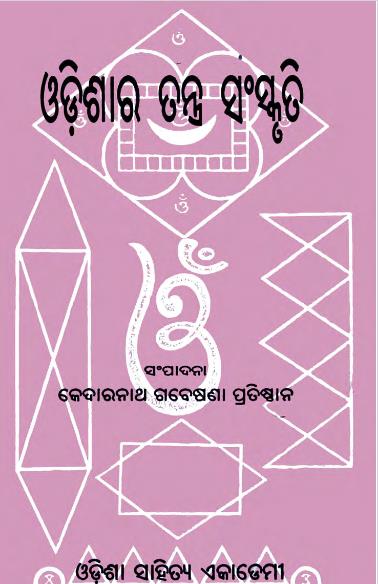The rich cultural tapestry of Odisha, deeply interwoven with its traditional practices, art forms, and spiritual legacy, presents a complex portrait of the Tantric culture that flourished in this region. With a history that dates back centuries, the Tantric practices in Odisha offer fascinating insights into the spiritual and cultural ethos of the land. The essay published by the Kedarnath Gabesana Pratisthan in 1989 serves as an invaluable resource for understanding this vibrant aspect of Odia heritag
Tantra, often misunderstood in the wider context, encompasses a philosophy and practice centered on the divine union of masculine and feminine energies. In Odisha, Tantric culture is intricately connected with the worship of Shakti, or the divine feminine. Temples like the famous Tara Tarini Pitha and the Mahavinayak temple in the state stand testament to the deep-seated reverence for goddess worship that permeates Odia religious life. This divine veneration is not merely spiritual but also reflects socio-cultural values that bind communities through rituals and traditions.
One of the most significant aspects of Tantric culture in Odisha is its unique rituals and practices, which often blend elements from Hinduism, Buddhism, and folk traditions. These rituals are characterized by a series of offerings, chanting of mantras, and intricate ceremonies that invoke the divine. The practice of puja, especially during the festival of Durga Puja, showcases how Tantric elements are interwoven into public worship, illustrating the importance of community and collective trance states during these events.
Odisha’s art forms, too, are heavily influenced by Tantric principles. The intricate sculptures adorning temples display a deep understanding of the human form and express the duality inherent in Tantric philosophy. The mythological narratives depicted through stone carvings convey stories of deities that symbolize the interconnectedness of life and the cosmos. This artistic expression is not just for aesthetic pleasure but serves as a medium for spiritual introspection and enlightenment.
Moreover, the significance of geographical locales in Odisha cannot be overlooked when discussing its Tantric culture. Places like Puri, the abode of Lord Jagannath, and the sacred hills of Utkal resonate with mystical energy that has drawn pilgrims and seekers alike. The landscape itself becomes a part of the Tantric journey, where specific sites are imbued with spiritual potency, emphasizing the belief that nature and the divine are inextricably linked.
In conclusion, the Tantric culture of Odisha, as highlighted in the 1989 essay by Kedarnath Gabesana Pratisthan, is a testament to the state’s rich spiritual heritage. It reflects a profound connection between faith, community, and nature, illustrating how entwined these elements are in shaping the cultural identity of Odisha. The synthesis of ritualistic practices, art, and geographical significance forms an essential part of the Odia ethos that continues to inspire and influence generations. Understanding Tantra in this context opens up new avenues for exploring the deeper dimensions of spirituality and cultural expression within the vibrant traditions of Odisha.
Books Info
| Books name | Odisara Tantra Sanskruti/ଓଡ଼ିଶାର ତନ୍ତ୍ର ସଂସ୍କୃତି |
| Author | Kedarnath Gabesana Pratisthana, Ed. |
| No Of pages | 348 |
| Publisher | Odia Sahitya Ekademi |
| Publication | 1997 |
| Printed At | Sri Maa Printers |
| Distributor | NA |

